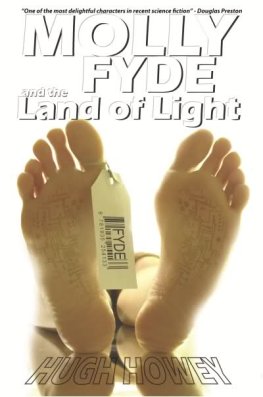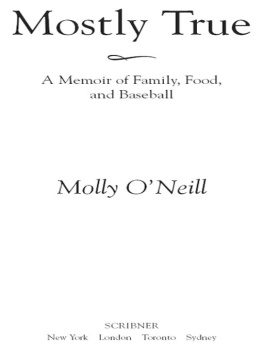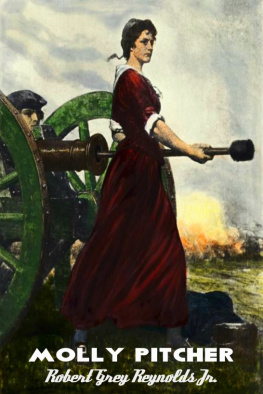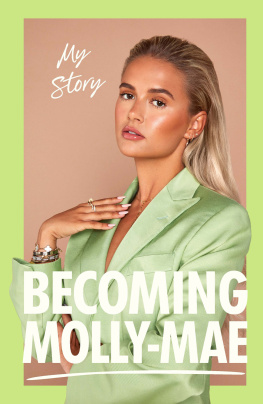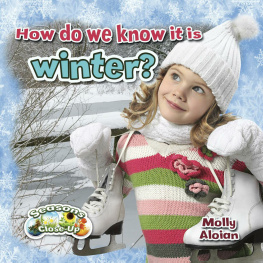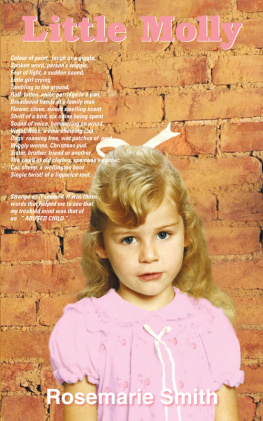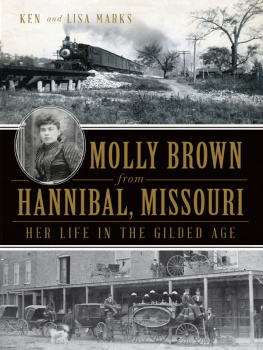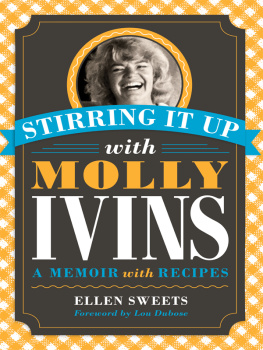The Map of Enough




Copyright Molly Caro May 2014
All rights reserved under International and Pan-American Copyright Conventions. No part of this book may be used or reproduced in any manner whatsoever without written permission from the publisher, except in the case of brief quotations embodied in critical articles and reviews.
Library of Congress Cataloging-in-Publication Data
May, Molly Caro.
The map of enough : one womans search for place / Molly Caro May.
pages cm
ISBN 978-1-61902-353-6
1. May, Molly Caro. 2. Women travelersUnited StatesBiography. 3. NomadsUnited StatesBiography. 4. HomeUnited States. 5. Group identityUnited States. I. Title.
G226.M328A3 2014
917.30092dc23
2013031385
Interior design by VJB/Scribe
COUNTERPOINT
1919 Fifth Street
Berkeley, CA 94710
www.counterpointpress.com
Distributed by Publishers Group West
10 9 8 7 6 5 4 3 2 1
For CQK
who lived this with me
and lives it with me still

The peace is partly in being free of the suspicion that pursued me for most of my life, no matter where I was, that there was perhaps another place I should be, or would be happier or better in.
Wendell Berry
When we love the earth, we are able to love ourselves more fully.
bell hooks
Contents

What is enough?

S ome say that your first ten years of life organize your entire perception of who you are. Thats a serious statement. I sat under a cottonwood tree, wind rustling the grass by my legs, and thought it out. But not for long, because how could I not agree right away?
That young girl occupied a literal present tense in my adult life. No matter where I went, she would surface in my memory with flashbacks that came to me during the most common moments buying cucumbers at the grocery store, petting my dog on the porch, filling my car with gas in the middle of nowhere. She spoke as if she were still alive, and always close. Maybe that girl was bolder than me. Maybe I wanted to retain her. Her stories populated my body. And she always appeared when I needed her most somehow her presence overshadowed, for an instant, the many small disappointments of self that had amassed over time.
Under the cottonwood tree, I unlaced my shoes and fell into the past.
When my father walks down the rolling lawn toward me, I unlace my roller skates and step onto the driveway. We are visiting from abroad the word my parents use, which must mean that where we live is foreign to us even though this place, my grandparents house on the Chesapeake Bay, feels more foreign to me. The air here smells of salt, of heat, of mowed grass. Everyone else is lounging up the hill by the house, probably eating Triscuits and cheese. Thats what we do when we come here, and we also play with the Russian dolls and page through all the old maps. My father puts a hand on my shoulder, crouches down to eye level, and asks if he can talk to me. Before I say Yes, I test my almost double digits self and wait a few long seconds just to feel what would happen if I said No. Its about a new job, he explains. Oh, thats familiar. Its the next line that throws me. In a few months, we will be moving to America. Because I dont know how to absorb this information, I scream at him.
I hate America!
I run away hard, my feet, still in white socks, slapping across the black asphalt. At the old dock, I collapse onto rough planks. Even though I like moving, moving to America is going to ruin everything. I dont know exactly why. I just know its true. Hot tears run down my already flushed cheeks. But the humid air eventually pulls me upright and my legs dangle out over the green water and I am watchful. The peninsula spreads out to nowhere, but I dont know that word peninsula yet, or that the long bird coasting by is a blue heron or that the capital of America, which people really call the United States of America, is forty-five minutes away or that there is a state with the same name as the capital, only its on the other coast, the rainy one. My grandparents, the ones who live here now, arent even from here. They grew up as Americans in Chile and raised my father while moving from Hawaii to Japan to Germany to Montreal to Belgium to England. And so far, my father has chosen for us the same wandering life: from Australia to the Dominican Republic to Spain to Mexico and, now, to America.
The crab cage stares at me. It hangs over the water. Piled on top of one another, the crabs are oblivious to chaos and also to their future. This afternoon, when my cousins and second cousins come over, while ears of corn boil in pots, we will paint black numbers on the crabs shells, line them up like prisoners, and make them race down the scalding driveway. My two younger brothers cant wait for the awesome event. I end up chewing my fingernails.
Reaching into the cage, I dodge the clacking of claws and feel brave.
One by one, I pull crabs out and fling them into the still water.
Plunk. Plunk. Plunk.
I agree with the sound of freeing crabs. They splash. They descend into the murk. Into the seaweed and sand. Float on their backs. Legs splayed out. Bellies white as ghosts. As the crabs go back to their element, my pigtails feel too tight and, suddenly, Im not sure where I am from and it feels like the most urgent question of my life. Soon Ill be sitting in a classroom where a teacher will hand me the crisp white sheets of an entrance test. I will learn how to fill in ovals with a number 2 pencil and also that I need to repeat a grade because I have no answer for the question of how many coins get dropped into a tollbooth. I dont know what a tollbooth is. I dont know about American quarters or nickels, even though, by lineage, I am American.
We moved to Dallas, Texas, of all places. On the first day of school, I noticed a clan of girls who, after a long summer apart, shrieked and clutched each other under a magnolia tree. After we all walked single-file inside, I sat next to the chubby boy everyone else avoided. He pushed his glasses up a sweaty nose, smiled at me, ripped a page out of the dictionary, stuck it in his mouth, and chewed. Then he actually swallowed. He continued to eat the dictionary during the entire class period. I smiled back like a co-conspirator because something about him made me sad. He was doomed. He was doomed to be an outcast forever. I didnt know whether I was doomed, but the thought of anyone being doomed was too much emotion to handle. Even then, I knew that everyone wants to belong to something, somewhere.
Next page

